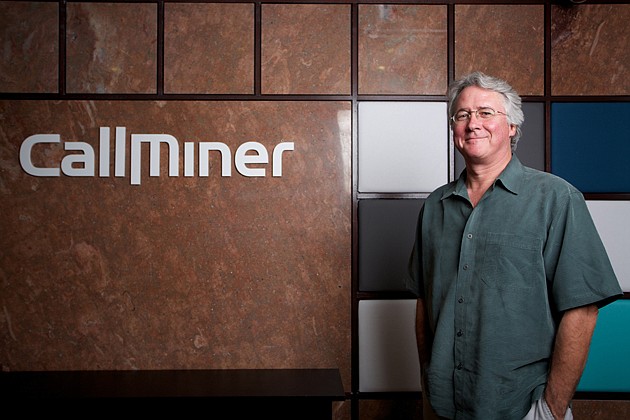- December 13, 2025
-
-
Loading

Loading

Is anybody listening?
Revelations that the government is snooping on U.S. citizens is evidence that phone conversations provide useful information indeed.
Clues to how the government may be doing that lies with companies such as CallMiner in Fort Myers. Using sophisticated speech-analytic software it has developed, the company mines 100,000 hours of recorded phone conversations every day for big corporate clients such as Web merchant Amazon, banking group HSBC and insurance giant Axa.
While the government may curtail listening to your private conversations, it's pushing companies to listen more closely to their conversations with customers. “State attorneys, commissions and agencies are driving this business,” says Terry Leahy, the president and CEO of CallMiner.
The government requires telecommunications, banks and other industries to keep tabs on customer interaction and report that back to various agencies. For example, the government wants to know whether firms are appropriately disclosing fees or sharing private information on the phone.
“We've added 27 new customers this year,” says Leahy. “In all, we have 70 customers.” Formed in Fort Myers, 36 of the company's 60 employees are located in a building on College Parkway.
The company has raised more than $25 million in venture capital since tech entrepreneur and Chief Technology Officer Jeff Gallino started the company in 2002 with $100,000 of his savings. (One of his first customers was Continental Airlines, which paid him in frequent-flier miles.) The company now also has an office in Boston, a city known as a center for computational linguistics.
One of CallMiner's investors is In-Q-Tel, the Central Intelligence Agency's nonprofit venture capital group. “We don't know if our technology is in use there,” says Terry Leahy, the president and CEO of CallMiner. “I suspect it is not.”
Leahy declines to share revenues, but he says CallMiner doubled in size last year, in part because it shifted to a more popular cloud-based subscription model for its service rather than software sales. The company aims to reach $100 million in sales within the next decade, Leahy says.
The market potential is huge. Leahy says businesses record 56 million hours of customer phone conversations daily. Because of the complexity of working with the federal government, Leahy says he prefers to deal with corporations, and as a result most of CallMiner's customers are in the private sector.
Companies use CallMiner's software in all sorts of ways. For example, companies can gauge whether prospective customers respond to certain sale offers, such as an upgrade from a cell-phone provider. “They can change these programs hourly,” Leahy says. Mining calls can tell companies if promotions are effective with certain demographics.
Leahy says he helps companies track what he calls the “customer journey.” For example, CallMiner can mine customer calls as well as their social media interactions with a company, such as tweets and other social media messages.
CallMiner has an advantage over competitors who only track social media. “The hardest thing to do is speech,” says Leahy, whose company is working on other languages such as Russian, various Latin American forms of Spanish and Arabic.
And mining phone calls is one way large companies determine whether their customers are satisfied or what hidden problems may lurk, Leahy says. “An unhappy customer can destroy a reputation in an afternoon,” he says.